Impact of EV Conversion on Vehicle Resale Value
By Sebastian Orellana
Updated Feb 17, 2024
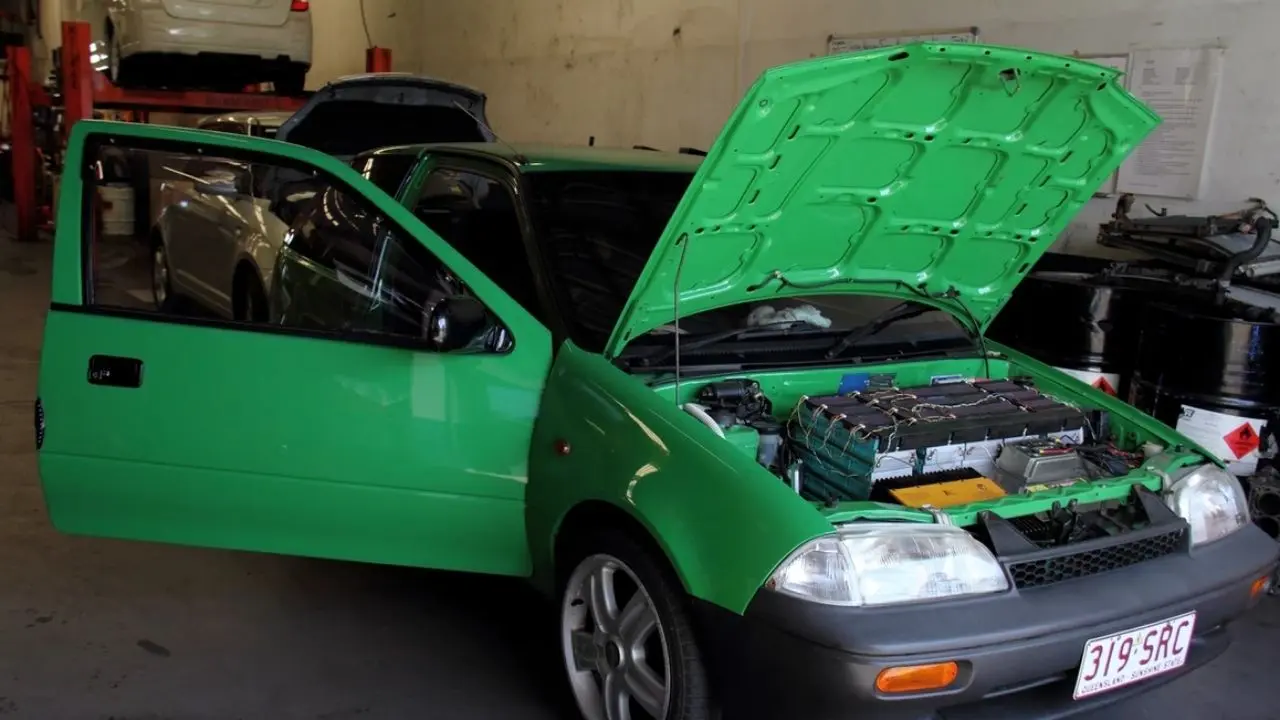
This article will discuss everything you need to know about EV conversion, the steps involved in this process, and a few reasons why many people are taking the plunge. We will explore current trends in the used car market and the many factors that impact the resale value of vehicles. We will then delve into the specifics – how does converting your vehicle into an electric one affect its resale value? This includes discussing depreciation rates, buyer perceptions, the longevity of converted cars, and even insurance rates.
Table of Contents
We will compare these factors with pre-built electric vehicles for a comprehensive understanding. Looking ahead, we present future predictions for EV conversion and how it may impact resale values. Finally, we top it off with some handy tips on maintaining and upgrading your converted vehicles for high resale value. Get ready to dive into EVs and understand how to maximize your automotive investment!
READ: Cost Comparison: DIY EV Conversion Kits Vs. Professional Installation
Understanding Electric Vehicle (EV) Conversion
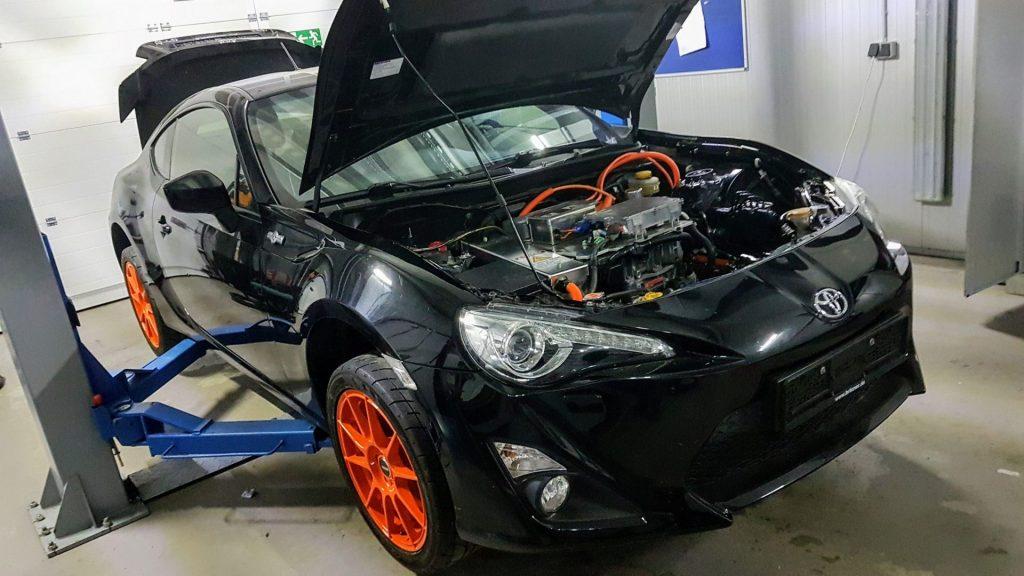
Electric vehicle conversion refers to the transformation or modification of a conventional internal combustion engine vehicle to an electric car. This process has gained popularity over recent years due to growing environmental concerns and increasing gasoline costs. The future of transportation is leaning towards electric vehicles because of their range, power, and efficiency.
What is EV Conversion?
The Electric Vehicle (EV) conversion process involves replacing a car's internal combustion engine with an electric motor and adding a large bank of batteries. The vehicle's transmission can be adapted or replaced depending on the type of EV motor installed. The breaker, fuse, controller, chargers, vehicle adapter plate, and motor mounts are required for the conversion. Additionally, there must be accommodations for charging the batteries and monitoring the electrical system.
In simpler terms, this conversion process allows a traditional gasoline or diesel-fueled car to run on electricity, significantly reducing the vehicle's environmental impact. The converted electric car operates just like any other electric car, where it draws electricity from its batteries, which are then recharged through a standard electrical outlet or a specialized charging station.
Steps Involved in EV Conversion
Firstly, select the vehicle to convert. Smaller, lighter vehicles are usually better as they require less moving energy. The second step is to remove the internal combustion engine and the parts that will not be needed, such as the exhaust system, fuel lines, radiator, and gas tank.
The third step is to install the electric motor. When placing the engine, ensure it lines up with the transmission and plug it in. After this, the controller gets installed. This device controls the battery's power to the motor based on the accelerator pedal pressure. The controller needs to be located somewhere it can stay calm, don’t put it inside a closed box or tightly enclosed area.
Next in the process is installing the batteries. You want the batteries to be spread out evenly over the car to distribute the weight for optimal performance. To finish, run the wiring from the batteries to the controller to the motor.
The last step is to integrate a charging system. This can be as simple as running an extension cord to the car to charge from a regular wall outlet. Remember to include a battery management system to ensure all the batteries charge at an even rate and don’t overcharge.
Why Convert to Electric Vehicles?
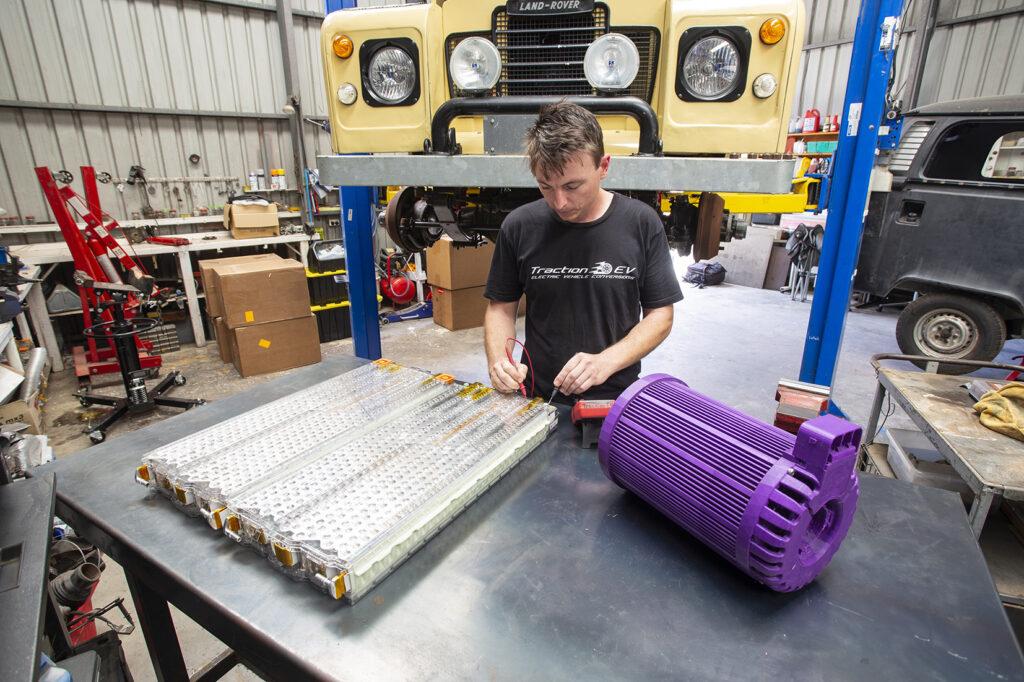
The advantages of converting to an electric vehicle are numerous. Firstly, electric vehicles are environmentally friendly as they do not emit harmful greenhouse gases into the atmosphere. This helps to reduce the carbon footprint and fight against climate change.
Secondly, electric vehicles are cost-effective in the long run. Though the initial cost of conversion can be high, an electric vehicle's maintenance and running costs are pretty low compared to traditional gas-powered cars. Electric vehicles do not require oil changes or tune-ups, and the electricity needed to charge an electric car is significantly cheaper than gasoline.
Additionally, converting to an electric vehicle allows you to upgrade an older vehicle with new technology, potentially increasing its value and extending its useful life. You can take a car you love, keep the style and design you are drawn to, and convert it into a more efficient and environmentally friendly version of its former self. The automobile resale market has seen dynamic shifts, particularly in the last decade, compelled by ever-evolving consumer behaviors, technological advancements, and demographics. The last few years have seen a surge in demand for second-hand cars, leading to increased prices and stabilizing market trends.
Several models and brands have been recognized as market leaders in the used car world due to their reliable lifetime value. The most prominent trends in the used car market of late include the popularity of eco-friendly vehicles, a surge in online car shopping, and the demand for certified pre-owned cars. With the increasing attention towards climate change, demand for eco-friendly or green vehicles has increased. As consumers grow more environmentally aware, hybrid and all-electric used cars have seen a surge in demand.
The rise of online platforms that connect buyers and sellers has significantly changed the face of the used car industry during the pandemic. Busy lifestyles and the COVID-19 restrictions have resulted in consumers leaning towards online car shopping. Users can, at their convenience, browse a wide variety of pre-owned vehicles, take virtual tours, and make a purchase decision. Online platforms also provide transparency about the car’s history and any issues with the vehicle that may be of concern to the buyer for making an informed decision.
Certified pre-owned (CPO) cars are a hit among consumers looking for a balance between the durability of a new car and affordability. These used cars, generally more recent models, come with a manufacturer's endorsement. The car usually undergoes a rigorous inspection process, and any refurbishments required are carried out before it enters the CPO program, providing a certain level of assurance to the buyer.
While market trends affect the overall trajectory of the used car market, several factors directly impact vehicle resale value. Make and model greatly influence a vehicle’s resale value. Certain brands and models are known for their reliability and durability and fetch a better resale value than others.
The vehicle's condition plays a vital role in determining its resale value. Buyers are likely to pay more for a car that has been well maintained with records to show it. High mileage can drop a car's value; lower mileage vehicles appeal more to the second-hand market. Cars with fewer miles on the odometer tend to last longer and have fewer problems than high-mileage cars.
The economy or market conditions at the time of sale significantly impact the car's value. During economic downturns, consumers buy used vehicles rather than new ones, increasing the demand and price of pre-owned cars. Similarly, the region/country of sales also impact resale value. Small cars generally have better resale value in areas with a dense population and limited space compared to more prominent cars and vice versa.
In the technologically advanced world, cars with the latest features and technologies fetch decent resale prices. Buyers are willing to pay more for used vehicles with contemporary tech features such as navigation systems, reverse parking sensors, or safety features like traction control, electronic stability control, etc.
In summary, the current trends in the used car market and various factors influencing vehicle resale value contribute to the overall dynamics of the automobile resale market.
Impact of EV Conversion on Vehicle Resale Value
In recent times, amidst global debates around climate change and air pollution, there has been a notable shift towards Electric Vehicles (EVs). While buying new electric cars remains an option for some, others opt to convert their existing gasoline cars to Electric Vehicles (EVs). However, the conversion process has benefits and drawbacks, the most significant being the potential impact on vehicle resale value.
READ: What is Needed to Convert a Car to Electric?
Depreciation Rate of Converted Electric Vehicles
Contrary to popular belief, converting your conventional car into an EV can slow its depreciation rate. An EV conversion gives the vehicle a new technological lease on life, making it more appealing to the environmentally-conscious buyer and possibly increasing its longevity. However, the depreciation rate is subject to many factors, including the conversion quality, the car's make and model, and the market demand for such vehicles.
Market Perception and Demand
Market perception and demand are crucial in determining the impact of EV conversion on vehicle resale value. As the concept of electric cars is gaining traction, there's an increased demand for EVs on the used car market. As the understanding and acceptance of EVs grow, penetration into markets has sharply risen, indicating a positive trend that can result in a higher resale value for converted vehicles.
However, potential buyers could still have reservations. EV conversions are not standardized and vary based on who performed the conversion and the quality of parts used. Buyers might feel more comfortable purchasing a used EV made by a reputable manufacturer rather than a converted one, predicting the latter to have more uncertainties around the lifespan and servicing.
Performance and Longevity of Converted Electric Vehicles
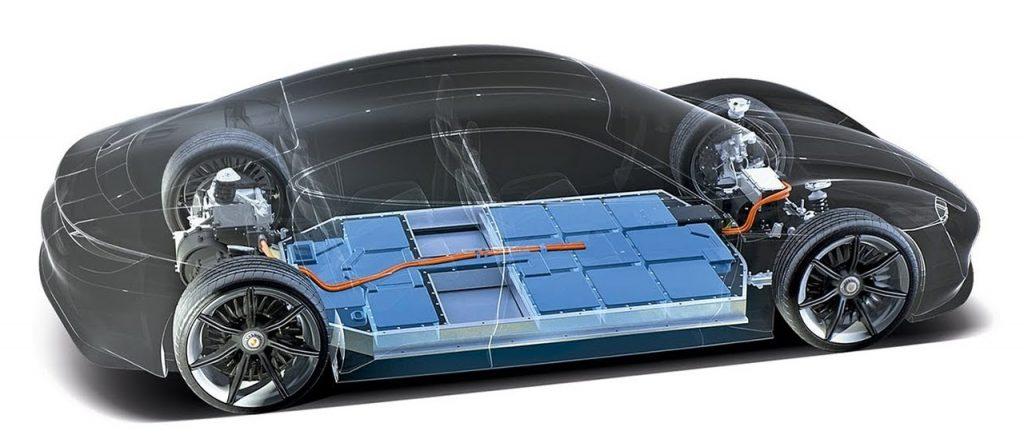
The performance and longevity of the car post-conversion are critical factors in determining its resale value. A quality EV conversion using top-of-the-range components can outperform its previous gasoline version. Additionally, maintenance costs of EVs are usually lower, a factor that might attract potential buyers, thus increasing the car's resale value.
Nonetheless, converting your car to an EV is not an easy task. It involves an understanding of complex electrical systems and may require custom-made parts. If not correctly undertaken, it could negatively affect the car's performance and significantly shorten its lifespan, decreasing its resale value.
Effect on Insurance Rates
Car insurance companies base their rates on risk calculations, and converted EVs could pose a certain level of uncertainty. This could potentially increase the insurance premium for such cars since the parts used in the conversion might be harder to source and replace in case of an accident. Insurance premiums may also shoot up considering the higher initial cost of the modifications or if the converted EV is classified as a modified car. Higher insurance premiums can result in a lower resale value since it adds to the ownership cost of the vehicle.
In conclusion, while converting a traditional car into an EV can benefit certain aspects, such as contributing to a cleaner environment and potential savings on fuel expenses, the impact on the vehicle's resale value can vary. Factors such as conversion quality, market demand, and insurance rates can all significantly influence the resale value of a converted EV. Therefore, while considering an EV conversion, these factors should be well-considered.
Comparison with Pre-built Electric Vehicles
The comparison between pre-built electric vehicles and converted fuel-to-EV vehicles surprisingly favors the value and utility of both types. As the world has become progressively more aware of environmental issues and the potential impact of gasoline-powered vehicles, the demand for electric cars is growing. Two viable options for consumers who currently own a traditional, combustion-based vehicle are either to convert their current car into an electric one or purchase a pre-built one.
Resale Value of Converted Vehicles vs. Pre-built Electric Vehicles
In the used vehicle market, it's a widely known fact that vehicles depreciate over time. However, how does the resale value compare between converted and pre-built electric cars?
Converted vehicles can often maintain a higher resale value than their fuel-driven counterparts, primarily due to the relatively innovative and distinct nature of such cars in the pre-owned market. The uniqueness might provide an elevated resale value, as converting a combustion engine vehicle to electric is often expensive and complex.
On the other hand, pre-built electric vehicles can also have a good resale value, depending on the model and make of the car. Certain premium brands, such as Tesla, have been noted for retaining a considerable part of their value even after years of usage. Furthermore, these automobiles maintain a high resale value due to the increasing demand for electric vehicles and the familiar comfort of a pre-built car.
Performance Comparison
When comparing the performance of converted and pre-built electric vehicles, pre-built models often have the upper hand. The reason is that these vehicles are designed to be powered by electricity from the ground up. Their performance, efficiency, handling, and driving experience are engineered to leverage an electric drivetrain.
In contrast, despite their appeal, converted vehicles cannot entirely match the performance of a vehicle specifically designed to be electric. They might not deliver the same range, efficiency, or speed as pre-built electric automobiles. The conversion process might also affect the vehicle's balance and handling.
Buyer Perception and Preference
From the perspective of the average buyer, perceived reliability and trust are two major factors that might influence their choice between a converted and a pre-built electric vehicle.
Pre-built electric vehicles appear more reliable and trustworthy, as they are manufactured by well-established companies that have been around for a while. This reputation makes pre-built electric vehicles a preferred choice for most buyers.
Although converted vehicles have made significant strides in popularity, they may face skepticism due to potential issues with consistency and predictability in performance. Additionally, potential buyers might be concerned about the conversion's quality and its impact on the vehicle's original characteristics. Therefore, while converted cars might appeal to particular ecological or DIY enthusiasts, they might not necessarily be the first choice for the average consumer.
In summary, while the developing market for electric vehicles offers a range of options to potential car buyers, the final choice significantly depends on a user's priorities, such as cost, performance, reliability, and personal preference.
The Rising Popularity of EV Conversions
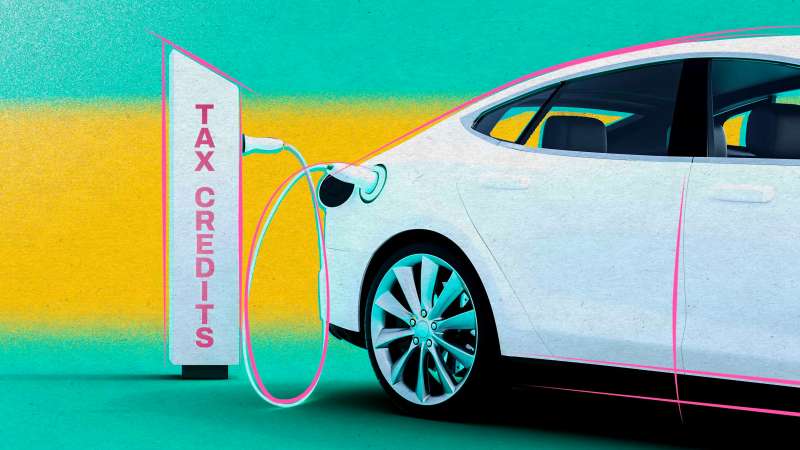
Electric Vehicle (EV) conversion, also known as "electrifying" a vehicle, is emerging as a popular trend in the automotive industry. This process involves replacing a car's internal combustion engine with an electric drive system. The idea behind this is to offer the benefits of electric vehicles, including reduced emissions and cost savings, without necessitating the purchase of a brand-new EV.
As sustainability becomes a priority for more consumers worldwide, many people are investing in EV conversions to "go green" and save money. Additionally, governments promote this trend by incentivizing consumers to switch to electric vehicles. As such, the EV conversion market is projected to grow significantly.
Projected Market Trends
Over the past few years, the EV conversion market has seen significant growth, which is projected to continue. Increasing concerns about climate change and the need for sustainable energy sources drive this growth. Rising fuel prices are also contributing to the demand for electric vehicles, as they offer the potential for significant cost savings over time.
According to various market research reports, the global electric vehicle conversion market is expected to grow at a compound annual growth rate (CAGR) of around 10-12% over the next five to ten years. This growth is likely to have a significant impact on the entire automotive industry, including resale values.
Potential Changes in Consumer Preferences
While EV conversions are a niche market, this could change rapidly as consumer awareness and demands shift. More and more consumers are becoming aware of the benefits of electric vehicles, including their environmental impact, lower fuel costs, and the convenience of home charging. As a result, the demand for converted EVs is expected to rise.
Furthermore, the price of electric drive systems and batteries, the primary cost components of an EV conversion, is declining due to technological advancements and economies of scale. This trend could make EV conversions an increasingly affordable and attractive option for consumers, further driving market growth.
Effects of Technological Advancements on Resale Values
Technological advancements in the automotive industry are expected to impact the resale values of converted EVs significantly. As the technology used in these vehicles improves, converted EVs' performance, reliability, and lifespan are also likely to increase, thereby enhancing their resale value. Furthermore, as more advanced and efficient electric drive systems and batteries become available, the cost of EV conversions could decrease, making these vehicles an even more attractive investment. Consequently, consumers may be willing to pay a premium for converted EV vehicles, thus increasing their resale value.
However, it's important to note that the resale value of converted EVs may also be influenced by other factors, such as the quality of the conversion, the condition of the vehicle, its age, and the brand. Therefore, while the general trend suggests that the resale value of EV conversions is set to rise due to technological advancements and increasing consumer demand, specific factors relating to individual vehicles will still play a crucial role.
How to Enhance the Resale Value of Converted Electric Vehicles
Converted electric vehicles are automobiles modified from an internal-combustion engine to an electric propulsion system. This transformation results from efforts to reduce carbon emissions and embrace cleaner, more sustainable forms of energy.
However, the resale value of converted electric vehicles can cause concern for many owners as potential buyers may hesitate due to issues like unknown vehicle history, likely service and maintenance challenges, etc. So, this section will outline various strategies to increase the resale value of these converted EVs.
Maintaining the Converted Vehicle
The first step to enhancing your converted electric vehicle's resale value is keeping it in good condition. Regular maintenance and servicing can go a long way in preserving the vehicle's condition, thereby increasing its appeal to potential buyers. The maintenance regime for EVs includes checks on the traction battery pack and wiring, thermal management system, electric motor and its power electronics, and onboard charger.
Creating a comprehensive maintenance schedule based on the manufacturer’s recommendations may be helpful. This schedule should include routine inspections for potential issues, regular cleaning of battery contacts to avoid corrosion, regular brake fluid changes, checking for signs of battery degradation, and frequent tire rotation and alignment checks to ensure even wear. Records of regular maintenance can provide buyers with proof that the vehicle has been properly taken care of.
Upgrades that Improve Resale Value
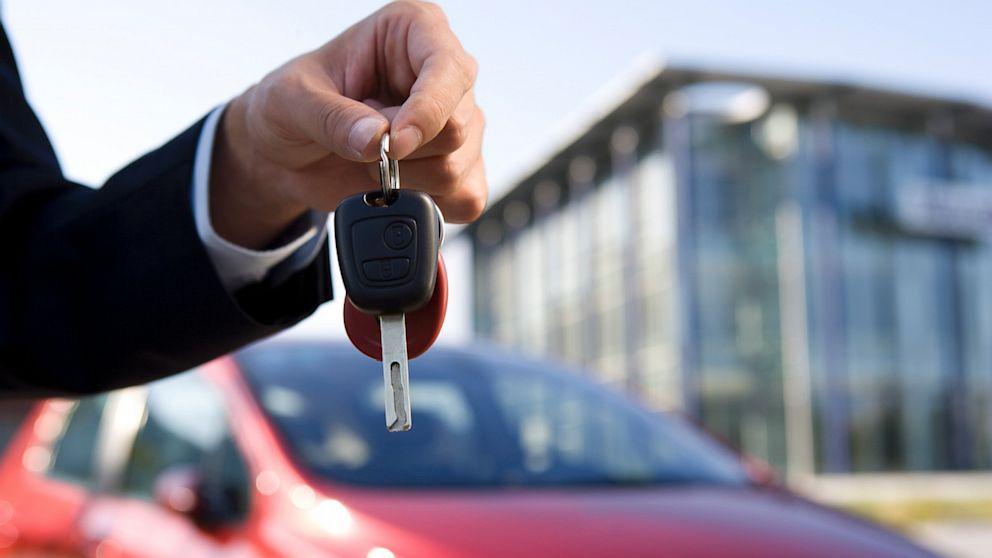
The right upgrades on your converted electric vehicle can significantly improve its resale value. These might include a larger battery capacity for extended range, improved motor performance, or high-quality electronic parts that ensure a longer lifespan.
Regarding upgrades, it is essential to consider the return on investment. Certain upgrades might be costly but may not necessarily contribute to a higher resale price. In contrast, some cost-effective modifications may significantly increase the vehicle’s resale value. Thus, it’s crucial to understand which upgrades potential buyers value most.
READ: The Cost of Converting a Gasoline Engine to Electric
Effective Marketing Strategies for Converted Vehicles
Another significant factor influencing the resale value of converted electric vehicles is how well they are marketed. It is crucial to reach out to the right target audience, highlighting the key features and benefits of the car, its maintenance history, and any unique upgrades or features it might have.
Online platforms, social media, and specialized vehicle-selling sites can be leveraged to reach a wider audience. Moreover, demonstrating the vehicle’s reliability and performance through videos or test drives can also be an effective marketing strategy.
In a nutshell, a combination of regular and meticulous maintenance, strategic upgrades, and effective sales and marketing strategies can help boost the resale value of converted electric vehicles. By adopting these tactics, it would be possible to make the most of your investment in a sustainably converted electric vehicle. Be it for car enthusiasts who enjoy the conversion process or for the environment-conscious consumer using it to reduce their carbon footprint. These strategies could ensure the selling process is as affirmative and profitable as possible.
